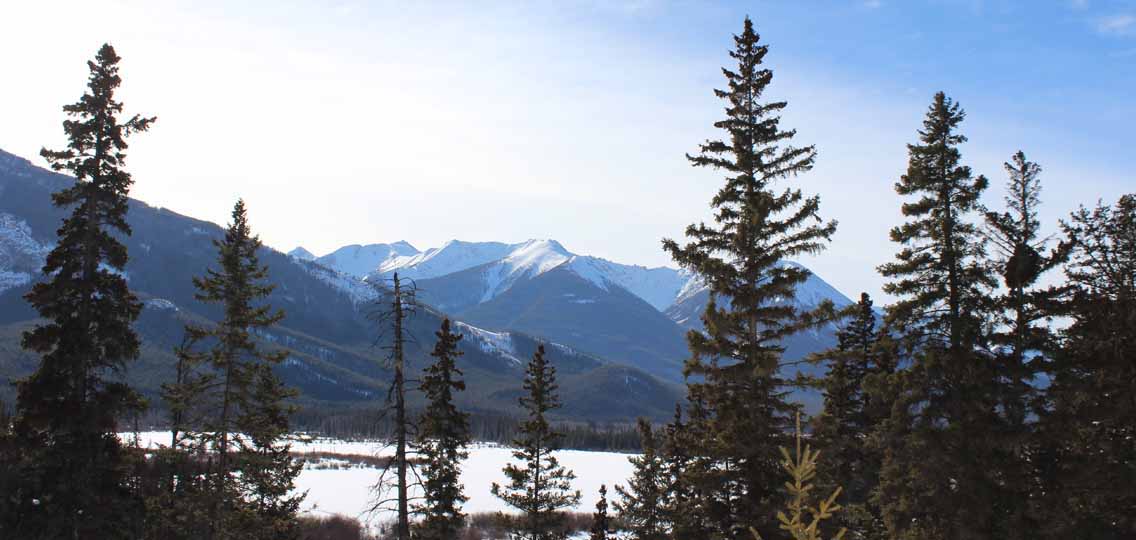Every sitting government faces a choice when it comes to climate change action. They can choose to do the right thing and increase their climate ambition and protect the health, security, and well-being of their residents. Or they can ignore the science and the moral imperative for action and endanger people now, and for generations to come.
We say their decision should be an easy one.
That’s why, for the last year, we’ve helped the David Suzuki Foundation and the Athabasca Chipewyan First Nation participate as interveners in Ontario, Saskatchewan and now Alberta’s attempts to derail nationally-coordinated efforts to take action on climate change, including putting a price on carbon pollution.
Since we first announced our involvement in these cases, we’ve received a bunch of really great questions. In advance of our upcoming court appearance at the Supreme Court of Canada on this issue, we’re answering some of the most frequently asked questions supporters like you have had about our reference cases.
What are these cases about?
The Ontario, Saskatchewan and (now) Alberta governments all posed the following question regarding the federal government’s Greenhouse Gas Pollution Pricing Act: Will this Act be unconstitutional in whole or in part?
The question leads to two possibilities. If the court were to decide that the legislation is constitutional, it would confirm Ottawa can put a price on fuels and substances leading to carbon emissions, and if it were to find that a significant portion is unconstitutional, it could mean that Ottawa’s approach to curbing emissions is derailed.
What these cases boil down to is whether the federal government has the ability to respond to the climate emergency by implementing nationally-coordinated solutions to combat climate change, specifically a price on carbon pollution.
We’ve been involved in these cases since the beginning because the law is clear: Protecting the environment is a shared federal and provincial responsibility. Without cooperation from each and every province in Canada doing their fair share to reduce greenhouse gas emissions, it will be nearly impossible for the country to meet its targets under the Paris Agreement.
Can you explain why the outcomes of the Ontario and Saskatchewan cases are important?
The courts in Saskatchewan and Ontario both upheld the constitutionality of the Greenhouse Gas Pollution Pricing Act and the federal government’s authority to establish minimum national standards to reduce greenhouse gas emissions.
While the Saskatchewan Court of Appeal, found that the law was not sufficiently temporary to qualify as emergency legislation, it agreed that “climate change is doubtless an emergency in the sense that it presents a genuine threat to Canada.” This was a judicial first.
In Ontario’s decision the court again confirmed the federal government has the power to step in when the province fails to effectively tackle climate change. It also found, “the need for a collective approach to a matter of national concern, and the risk of non-participation by one or more provinces, permits Canada to adopt minimum national standards to reduce GHG emissions. The Act does this and no more. It leaves ample scope for provincial legislation in relation to the environment, climate change and GHGs, while narrowly constraining federal jurisdiction to address the risk of provincial inaction.”
Is Alberta’s reference case different than the cases that were heard in Ontario and Saskatchewan?
In short: There is no difference between the Alberta case and the ones already heard in Ontario and Saskatchewan. But that doesn’t mean this case isn’t important.
The outcome of Alberta’s case will have implications when this issue heads to the Supreme Court of Canada in spring 2020. That’s why we couldn’t let Premier Kenney’s decision to undertake another political exercise designed to obstruct climate action, go unchallenged.
We’re in court to provide a persuasive argument that reinforces the legal precedents that have upheld the constitutionality of the Greenhouse Gas Pollution Pricing Act and the federal government’s authority to establish minimum national standards to reduce greenhouse gas emissions.
To take action on the climate emergency and protect Canadians across the country, we need to be able to depend on the federal government to take swift action when provinces fail to implement solutions to reduce emissions in accordance with scientific imperatives. Moreover, Indigenous peoples’ constitutionally-protected rights demand that all levels of government take steps to protect their traditional ways of life from the worst impacts of climate change.
Climate change has been an issue for a long time. Why is it so important that action is taken now?
On the ground, we’ve witnessed the devastating impacts of climate change and the heroic efforts to combat it, particularly from young people — like the group that’s suing the Ford government for weakening its climate targets.
Canada’s climate is warming twice the rate of the rest of the world and we have approximately a decade to take dramatic action. To be more specific, according to the Intergovernmental Panel on Climate Change’s 2018 Special Report, global emissions must be reduced by 45 per cent of 2010 levels by 2030 to have a 50 per cent chance of limiting warming to 1.5 degrees and significantly reduce the risk of severe and extreme climate change related impacts.
If we do not heed their advice, climate related impacts will worsen in the coming decades. Take, for example, the impacts climate change will have on the Athabasca Chipewyan First Nation’s traditional territories. Scientists have determined that, in one lifetime, the temperature in their region will not increase by 1.5 degrees but up to 7 degrees. To put this in context: this is the annual average temperature difference between Toronto and Sacramento, CA.
This is why we need all levels of government, regardless of political stripe, to the right thing and increase their climate ambition in order to protect the health, security and well-being of its citizens.
How can I support this case?
This case, like all Ecojustice-backed public interest litigation, is 100 per cent funded by individuals and organizations who share our vision of a thriving environment, safe climate, and healthy communities protected by effective, well-enforced laws. This means that we rely on the generosity of supporters like you to make our work possible.
As we finish off our days in court in Alberta, we’re already preparing to head to the Supreme Court of Canada next year on this issue.
Please, consider giving a gift today and help us stand ready to use the power of the law to hold government to account for keeping Canadians and the environment safe.



